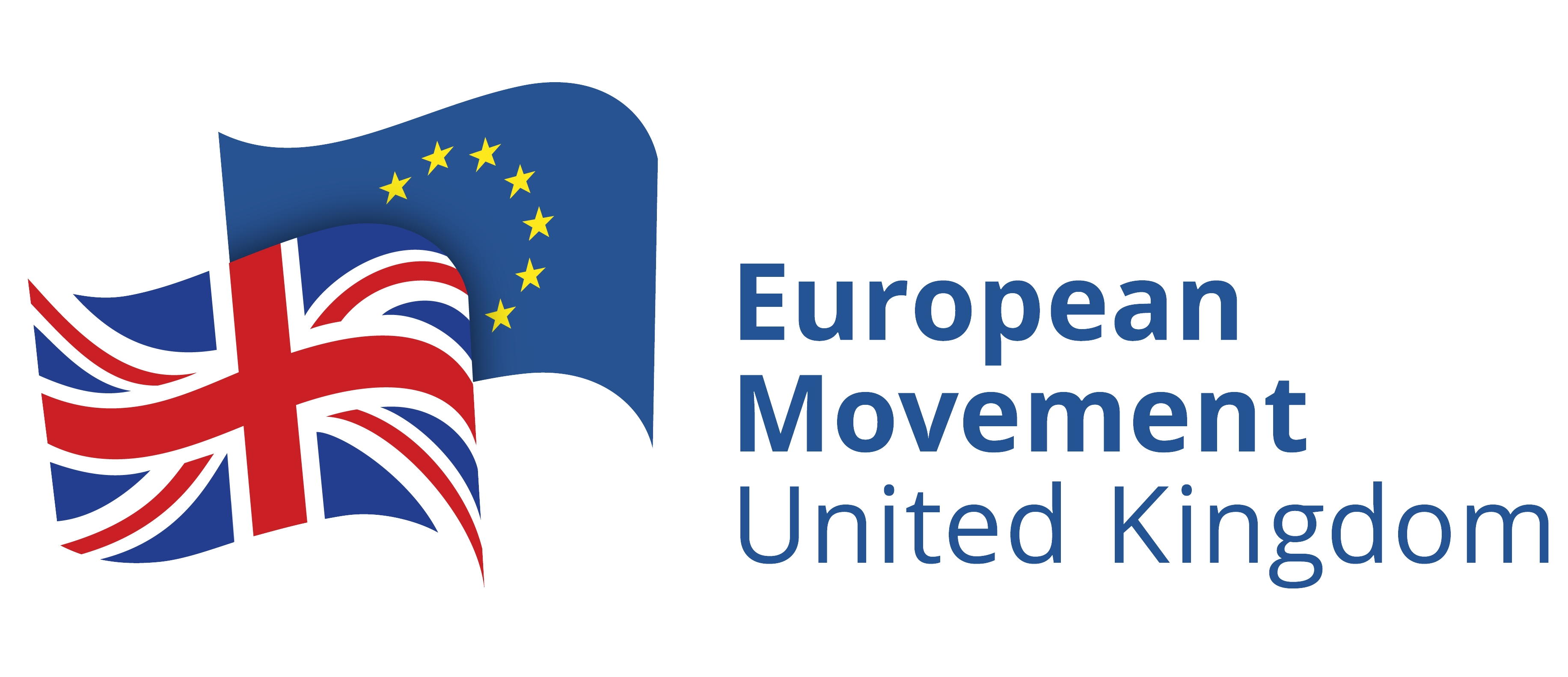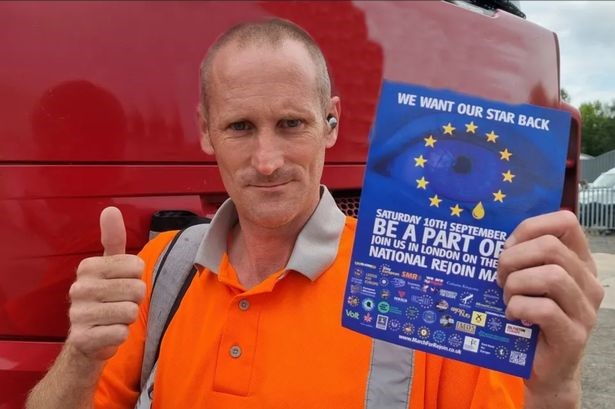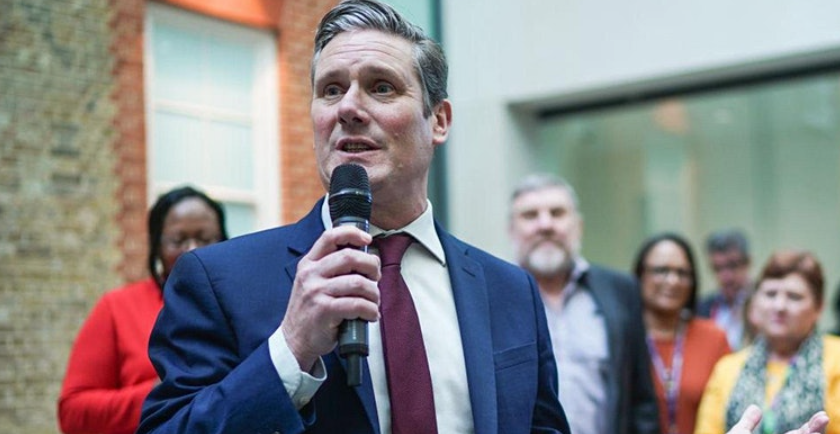
Bremainers Ask …… Mike Galsworthy
Mike Galsworthy is Chair of European Movement UK and co-founder of Scientists for EU/Healthier IN the EU. He is a media commentator about the effects of Brexit on the scientific community in the United Kingdom, a presenter with Byline TV and founder & co-director of the Bylines Network, which runs 10 citizen journalism online papers around the UK.
The important thing to do is to get the “Brexit has failed” leave voters onboard. You’ll notice that although a very high proportion of people who voted leave agree that it has failed, a much smaller proportion would change their vote. Why? I’m guessing it’s because they still believe in the vision of Brexit as it was set out, over the vision of being an EU member. So, they believe their vote was the right choice, which they’d take again, despite the fact that in the current circumstances it has not borne fruit.
You may have noticed some Brexiteers now trying to push a new version of their vision – “National Conservatism” or “national sovereignty” as a way to build on Brexit and make it deliver the original vision. Sell the pot of gold at the end of the rainbow again, if you will. That’s why we need to go to those communities and those people, understand what it is that they want for their lives, kids, community and country, then find a way so our vision of rejoin is actually something that inspires them, on their own terms. Only then can they get onboard with rejoin. Just bashing them with how bad Brexit is will not win them over – they’ll be looking around for something else now, a new hope, and we must have a positive inspiring offer for them. If we don’t, we’ll lose them
Valerie Chaplin : How do we combat the negativity of Starmer in backing Brexit – it seems we have no opposition to vote for?
That’s why, in England in particular, we need European Movement as a prominent, visible and large alternative. Without anything like EM around, people will get frustrated and not feel hopeful. But if we can show rocketing membership, a fast-growing organisation with new branches all over the UK and presence in media from local to national, with more big-hitters joining as champions in our ranks, then we can really capitalise on this moment right now.
Starmer has made some pretty silly moves by painting in Brexit lines too hard and reaching out to an Express audience that doesn’t trust him, at the expense of his own base. However, he has no control over the shifting mood on Brexit in the country. Try as he might, he’ll not be able to avoid the issue should he come to power. He’ll be under pressure from businesses, Labour members, Labour MPs, other parties, public polling and media questions. If we can effectively build large societal structures advocating rejoin, and the polls are showing 65% for rejoin, what is Starmer, realistically, going to do? King Cnut knew, and I’m sure Starmer does too, that a leader cannot command a tide not to rise.
Keith Glazzard : A Labour or Labour led government is possible after the next election and closer ties to Europe may well result in an approach for access to the single market/customs union. What do you think the EU’s response to such a move would be
“The door is always open” said Michel Barnier recently. Which is true, but also quite simplistic. I do not think that a majority Labour government would open such a question (CU and/or SM) in their first term. But a Labour-led government in a coalition/confidence-and-supply arrangement is a very different beast as the Lib Dems (the most realistic partner) would come in with demands on PR and Europe. So, that could see things move very fast. Even the PR part makes a huge difference on UK-EU dynamics because the EU would know pretty instantly from that that there would be pretty much no way any future pro-Brexit government could form.
But anyway – back to the Labour majority scenario: The EU would be open to it, but they’d want to see a rapidly-diminishing Brexit contingent in the UK, because the last thing that they want to do is waste more time on the UK playing the hokey-cokey (in, out, in, out) down the decades with their EU membership and EU structures.
If you’re asking about Horizon Europe, I find it quite distressing. A few years back for Scientists for EU, I calculated that under Horizon 2020, the UK had missed out on £1.5bn from 2016-2020 simply due to Brexit uncertainty getting in the way of collaborations, despite us being fully paid up members. I would hate to do the same calculation (i.e. loss relative to Germany) for the 2021-2023 period.
I was actually joyful when the Windsor agreement was signed and Ursula von der Leyen said “this is good news for scientists” but noticed Sunak’s refusal to echo the sentiment. That then grew to an angry horror when I found out that, having waited for years outside Horizon Europe and shunning any Plan B because we were hanging on for Horizon Europe, that Sunak would then say he prefers a Plan B. That instantly threw cold water on the whole thing and will have had a chilling effect on our collaborations.
Sunak may think he was being careful with money or haggling hard – but moves like that just lose money hand over fist. And I also note that Sunak, as Chancellor, threw out Erasmus+ too. What a wally! I want to see a deal on this asap – no more dragging it out and diminishing our science, or further diminishing and threatening this key bind of our nations. It’s vital that it’s fixed. This comes down squarely on our Government, in my view.
Beyond science, the loss of Freedom of Movement really bothers me. More important than our trade, for me, is the identity, rights and opportunities of our people (and, by our people, I also mean Brits abroad and fellow European citizens making their lives in the UK). Throwing away FoM not only took away an identity and a birthright from us, but it has done so much damage to people’s lives and families. It was wanton destruction. What needs to be fixed here is attitudes about immigration in general and free movement in particular. No political party wants to take it on, so this is where European Movement must do the work on public education, polling, focus groups, message testing, etc, etc. And this is a key element that must be supported by the public if we are ever to rejoin either Single Market or the EU outright. So this is where I want us to put a huge amount of work.
Anon : As Chair of European Movement UK, what changes do you hope to bring to the organisation & what is your first priority?
I hope to bring my passion, energy and my ability to knit people together from grassroots to big players. I love community-building and I want to build a huge, effective, pro-European community with EM at the heart of it all.
My first priority has been to drive up the membership. That is absolutely the most necessary first step to getting the organisation bigger, so that we can take on more staff and resource the grassroots better. We’re not a think-tank, so we can’t get away with just a small team of analysts – we’ve got a vast community of members and local groups to service, train, supply, assist, etc and I take that function of EM very seriously.
If we are to get the UK back into the EU, it’s not going to be done by a small team in Westminster – it’s going to be done by a huge great heaving community all over the country with well-resourced campaigns everywhere. So, the sooner we can get the membership and those underpinnings growing, the better place we’ll be in come the time. Additionally (and this feeds in) we need a lot more media exposure as a priority. European Movement needs to become a household name – and that in turn will help fuel the community build we’re undertaking.
Lisa Burton : There are a lot of excellent, active, pro-EU/anti-Brexit groups within the EU. Yet, Bremain is the only group outside of the UK to be affiliated with European Movement UK. As the newly elected Chair, do you have any plans to get more EU group affiliations or any plans to have ‘supporters of EMUK’ for the likes of industry, businesses, civic societies etc, who share our goals
Short answer – yes, absolutely. And again, this is why we need to build the kind of staff size that can support and engage with all such sectoral groups. I remember in the Britain Stronger in Europe campaign: I (as Scientists for EU) just could not get their ear on so many things. They had one guy who was a “stakeholder manager” and he was constantly deluged in correspondence and requests so he spent his whole time (as far as I could tell) fobbing off different groups to just give their team some internal peace. But think of all the opportunities missed!
I know exactly what it feels like to be on the outside, with good ideas, but never being heard. I also know what it feels like being on the inside being swamped with requests that you cannot possibly manage. The only solution that I can see is to build the kind of team size and structure that can genuinely engage all the key parts of a nationwide movement and get the best out of all of them. And we absolutely need strong sectoral campaign drives.
Well that’s why the rejoin campaign is starting right now and learning right now! You cannot wait on last minute persuasion; you have to try and win before the contest itself actually starts. For me, the biggest lesson from 2016 was exactly that. By 2016, the Leave side had campaign veterans championing Brexit. They’d been at it for 25 years. They knew each other, they’d tested lines on it, toured around, found financial backers and sympathetic media. The Stronger In campaign, when it came together in late 2015, was constructed of people who were woefully naïve on matters European, and green as green could be on campaigning. So, for me, lesson one has always been to build, train and fully equip the army long before the battle. And if you look at what we have actually built since 2016, it is quite phenomenal. We have lots of veterans around, lots of hard knocks, lots of experience and lots of local groups who have lived through the tough times. We’ve built character and resources – community online and community knowledge about our core arguments – and now we’re really building central capacity at pace.
That’s the primary lesson. The second lesson is to be able to go out and meet people at their point of need. The huge comms errors of both Stronger In and People’s Vote was to think that endlessly repeating “economic damage” and “we demand a people’s vote” as pretty much catch-all campaign messages was going to turn people around.
Society is much more granular. People care about their own and their community identities, and community priorities. Yes, Vote Leave was saying “take back control”, but they were also going into actual communities and telling them “take back control so you can catch more fish from your own waters”, “take back control and scrap the stupid common agricultural policy”, “take back control of immigration to clear out these Eastern European workers that are sleeping six men to a room and undercutting what you can reasonably charge”, “take back control so we can get your Bangladeshi family over here once we stop the flood of European free movement taking their place”.
You see? That’s how the messaging was tailored to meet people at their point of need/desire. Yes, it was all BS and shamefully so, but it was all based upon what different communities wanted. When did PV do anything like that? We absolutely need to understand community need – and meet those communities at their point of need with our offerings, but unlike the Leave campaign, make sure they are solid promises and those communities stay onboard all the way to delivery. Brexit is failing because the promises didn’t hold up. Rejoin will be a success if the promises do.
David Eldridge : Apart from rejoining the EU, or at least developing a closer relationship with them, what do you think the main issues in next year’s general election should be?
The lead issue is clearly going to be the economy and who the public can trust to lead the economy out of the briar patch we’re in. There’ll be a big clash of Tories and Labour both saying, “you can trust us, but not them” and attacking each other’s economic credentials. There’ll also be debates around how you grow the economy out of a difficult spot – who do you invest in and where do you squeeze? But the main battle will be one over trust.
Flanking that, there’ll be more talk of corruption and constitutional reform. The public are still itching to see “real change” and both Labour and Tories will take aim at each other with portrayals of each other as complacent, incompetent elites. Labour will highlight the vast corruption and impropriety in office. The Tories will say Labour is the vanguard of “woke” culture sapping the civil service, business and wider society. As to what the issues *should* be (outside of Brexit); I’d say (1) guaranteeing basic quality of life (through a cost of living crisis), (2) reliable economic management to build out of crisis, (3) NHS.
Mike Phillips : How do we best promote the benefits to UK of getting back into Horizon and Erasmus, as first steps towards re-building a close relationship with the EU
With Horizon, everybody apart from Sunak knows the benefits – and I just don’t have his phone number. There’s realistically little we can say or do at this stage to swing anything there as it’s deep in negotiations between the UK and EU and it will stay there until they come to an agreement over money.
With Erasmus+, it’s a different kettle of fish. A really good ongoing campaign with strong involvement of youth groups can make it a prominent future-focused issue. Sunak will not want to backtrack on it before the next GE (although we could really hit him if we can get Conservative youth voices to back it), but it’s certainly a goer for a new Labour government that wants to throw something to rejoiners early on without compromising any of their red lines on EU relations (FoM, SM, CU).
So, that’s a real hopeful one to go for. Also, on Horizon, if Sunak hasn’t done a deal before next GE (surely he will and try to claim a win), then that too would be a complete gift for a Labour government. I’m very confident that eventually we’ll get both back. And then we’ll get more. And more. Until we’ve fully restored our place back in the European team.
In July, we will be returning to our occasional feature of Bremainers Ask Revisited. This time we will be asking 3 former contributors to comment on the state of play of British politics, and Brexit in particular, in the first half of 2023.
We are delighted to announce that our contributors will be Prof. Anand Menon (UK in a Changing Europe), Marina Purkiss (Jeremy Vine Show, The Trawl Podcast) and Peter Corr (National Region March).

















